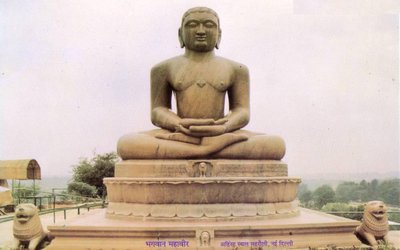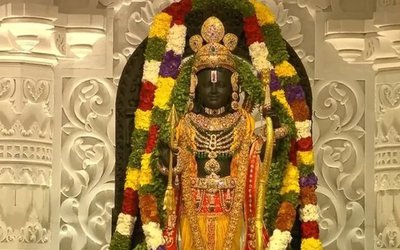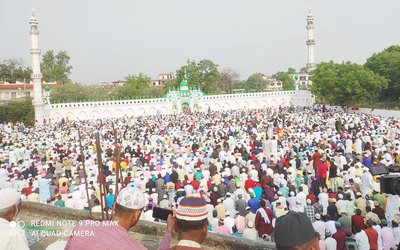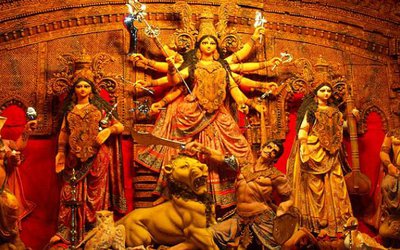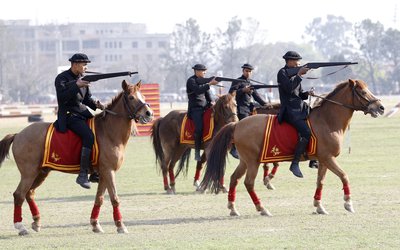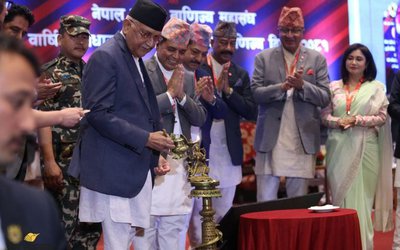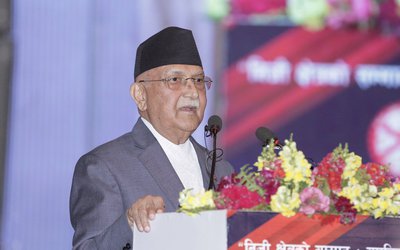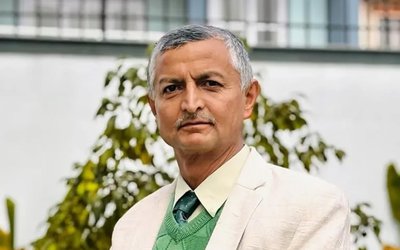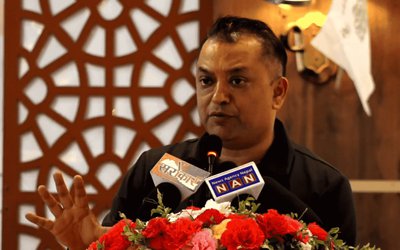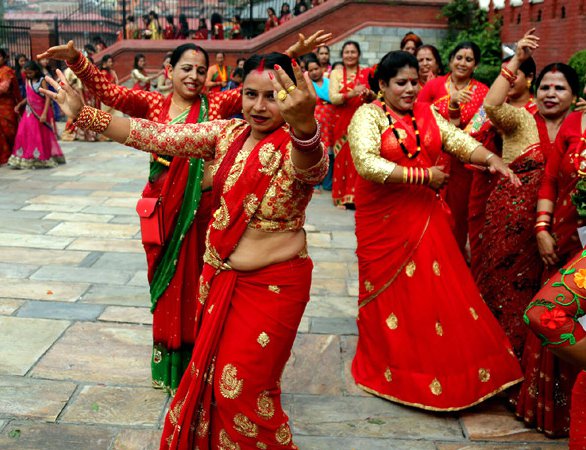
Today is Hartalika Teej. This is a Hindu festival mainly celebrated in Nepal and North India. From early in the morning, women have gathered in Pashupatinath Temple and other Shiva Temple all over Nepal and northern India.
The day has its roots in ancient Hindu traditions and is believed to have been celebrated for centuries. The festival, which is thought to have been observed for millennia, has its origins in ancient Hindu rituals. It is dedicated to the goddess Parvati, who in Hindu mythology represents the pinnacle of devotion, love, and marital bliss. Married and unmarried women observe a day-long fast to wish for a long life for their spouses.
When is Hartalika Teej 2023 on September 18?
According to the Hindu calendar, Teej which means 'third' denotes the official beginning of monsoon following the new moon. There are three different types of teej: kajri, hartalika, and hariyali. Hartalika Teej Vrat is celebrated during Shukla Paksha Tritiya of Bhadrapada month. It usually falls in the month of August and September, according to the Gregorian calendar. This year the festival will be celebrated on 18 September 2023 on Monday.
What is the story behind Hartalika Teej?
Hartalika word is a combination of Harat and Aalika which means abduction and female friend respectively. According to the legend, Hartalika Teej is about the union of Lord Shiva and Parvati. Lord Shiva appeared in front of Parvati and accepted her as his spouse after being moved by her unwavering love and devotion. On the auspicious third day (teej) of the brilliant half of the lunar month of Bhadrapada, they got married. Since then, Hartalika Teej has been observed in order to request the goddess's blessings for a joyful and peaceful married life.
What is the cultural and religious significance of Hartalika Teej?
Hartalika Teej holds great religious and cultural significance. It fosters marital love and loyalty and enhances family relationships. The day reflects the rich cultural and mythological heritage of India.
The festival serves as a representation of women's agency in selecting their life partners as well as their empowerment. It emphasizes Parvati's resolve to defy her father's desires and wed Lord Shiva. So, the day celebrates the joy of marriage and the love between spouses.
What is the difference between Hariyali Teej and Hartalika Teej?
Hartalika Teej falls on the Tritiya Tithi of Shukla Paksha of Bhadrapada, while Hariyali Teej falls on the third day of Shukla Paksha in the month of Adhik Maas Sawan. The celebration does, however, honour the union of Lord Shiva and Goddess Parvati.
The Hartalika Vrat is known as Gowri Habba in Karnataka, Andhra Pradesh, and Tamil Nadu, denoting its significance in obtaining Goddess Gowri's blessings. During this time, women observe the Swarna Gowri Vratha in order to request Goddess Gowri for her good married life.
On this day, get up early on this day, take a ritual bath, and worship Goddess Parvati and Lord Shiva. They offer flowers, fruits, and sweets as offerings. Many women observe a day-long fast without consuming food or water, breaking it only after performing evening rituals. Many women observe a daylong fast. After the fast, a sumptuous supper is served that includes a variety of desserts and traditional dishes.
Although the Teej celebration starts months before the Teej traditionally it is customary to eat the Dar one day before fasting. Dar is amidnight food consumption for the endurance to the fasting of the next day.
For centuries, the dimensions of this fast for the good of women and her family have been modernized over time. Some commercialized components and obsolete rituals are added however, the main significance and true meaning of Teej withstands the same.
It is important to consider Teej as a purely simple and important festival and to make it accessible to all, rich and poor alike.
On the other hand, there is summer season, it is necessary to take special care of health, eating too much oily food, the maximum consumption of rich and tamasi food can make you sicker, so it is important to take care of these things while eating. The notion of strict fasting even without water are fruitful, this is not true. The health of a good husband and wife for unmarried and the health of the husband and family cannot be determined not only by a single day of fasting but by a yearlong of coordination, understanding, and cooperation, dedication, and respect for each other.
Men have equal responsibility today, one needs to take responsibility for the kindness of his mothers, sisters, and wives towards him, he needs to play the role of good companions by respecting and caring for them today. As an unmarried man, do you have any idea, is someone going to fast somewhere tomorrow?
Tomorrow's fast is not only fast but also a day of dancing, talking, worshiping, and having fun. In this way, it is customary for all the women to gather together and have fun and eat sweets and delicacies in the middle of the night, this is Dar.
The anguish of the daughters who could not go to their mothers while remembering the days of eating Darr is also shed with deep tears, sometimes in song and sometimes in love.
Teej is also an enthusiasm for gender equality and gender equity. Teej can be taken as a common platform for the smiles of all-female relatives including mother, daughter, daughter-in-law, mother-in-law, mother-in-law, sister.
- Efforts to reform the economy are positive, but not enough: Dhakal
- Apr 10, 2025
- Government committed to preventing deterioration of business environment: PM Oli
- Apr 10, 2025
- Teachers Are Protesting On The Streets Of Kathmandu
- Apr 10, 2025
- Senior Advocate Vijaya Prasad Mishra elected as Bar Association president
- Apr 10, 2025
- No Amount of Washing And Cleaning Can Turn Former King Gyanendra Shah Into A Constitutional Monarch: Gagan Thapa
- Apr 10, 2025
